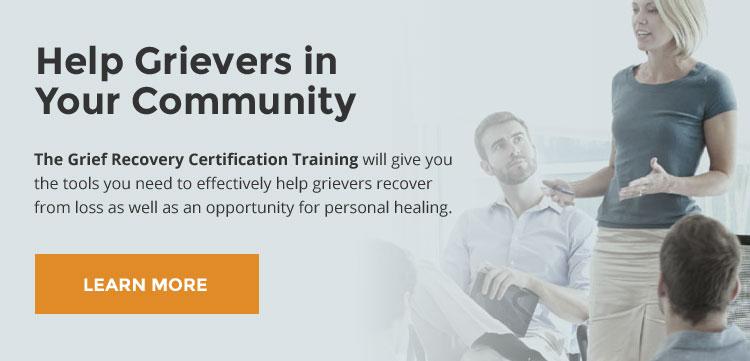The term “complicated grief” was introduced in the 1990’s. It was designed to define grief that persists over an extended period of time and completely overwhelm a person’s ability to function in day-to-day life. The DSM-5 added this term to its list of mental health disorders. The symptoms of complicated grief are the same as those of grief in general. It is only the concept of the passage of time and the continued extreme severity of these symptoms that delineates the difference.
In reality, grief care professionals understand that time is not a factor in true recovery from emotional loss. The only thing that happens with the passage of time is that grievers become accustomed to living with the pain. Since they have few, if any, tools to effectively deal with the pain of grief, they learn to suppress, internalize and even discount that pain and the impact it has on their lives. Indeed many grievers adopt short term energy relieving behaviors as a way of “keeping busy” to try to avoid this pain. Food, alcohol, medication, additional work assignments, exercise, and gaming are just a few examples of these many activities. They fill the time, but offer no lasting assistance in recovery. When grievers stop doing these things, the pain is still there. In actuality, these energy relieving behaviors sometimes become so addictive that they create additional grief.
Even though grief is the normal and natural reaction to any change in our lives, it can be overwhelming. The emotional pain of loss can hit people in a variety of ways. It can leave people lost and confused about how to function in daily life. When these feelings persist, without any apparent relief, it can leave grievers searching for a logical explanation.
Some grievers will self-diagnose as suffering with “complicated grief” as a way of justifying why they are not moving forward and returning to what they saw as their “normal” selves. A quick search of the internet may have made this label seem appropriate, simply because they did not research this term further and study the complete definition. For others, a friend or family member may have suggested this as an explanation for their continued sadness.
If someone tells you, as a grief professional, that they are suffering from “complicated grief,” this may not be based on an actual diagnosis from a clinical professional. As grief professionals, it is incumbent on us to look beyond the presenting explanation and treat the underlying problem. Complicated grief occurs in only a small percentage of grievers and is often associated with a family or personal history of other mental disorders. Ultimately, no matter the situation, the feelings of grief can or may persist, on some level, until the griever takes personal action to recover.
We have looked at how labels can negatively impact grievers in past articles, most notably in our in-depth discussion of the “stages of grief.” Rather giving grievers labels, which they sometimes use to explain why they cannot “get better,” would it not be better to put more focus on giving them an action plan?
The Grief Recovery Method is a proven tool in helping people move beyond the pain of loss. With over 35 years of application, it is being used cross-culturally around the world. It recognizes and emphasizes that to deal with the pain of loss, the griever must identify the unfinished business in lost relationships and put voice to those feelings in a focused and structured manner. It is an effective way to actually find release from the control these feelings have on their ability to find happiness in life. It allows them to let go of the emotional pain of the loss, and still be able to enjoy any positive elements that relationship brought into their lives. It is also a technique that will allow them to effectively deal with future loss in a positive and timely manner.
Even in those cases with people who suffer from the complicated grief, as defined by the American Psychiatric Association, these tools can be used in an educational process to supplement the additional therapy that is being offered. A number of clinical professionals have found them to be an added value to their general practice.
The key to success for any griever to move through their emotional pain is proper information. Since few people learn anything of value in effectively dealing with loss in their formative years, it only makes sense that educating them to utilize tools that can actually work is a positive step.
Grievers tend to be the most misunderstood and, often by their peers, the most mistreated members of our society. Rather than defining them with a new label to explain their pain, it is incumbent on all of us in the “after care" community to offer them assistance and recovery solutions.
























Add new comment